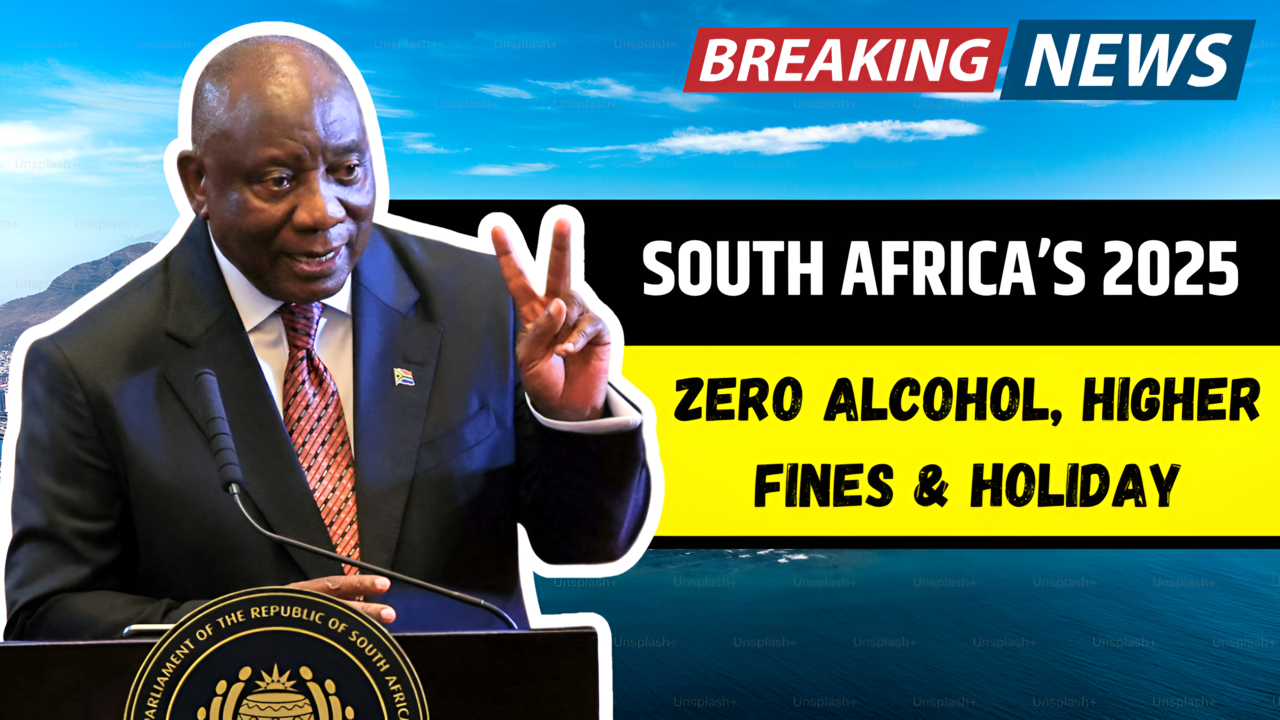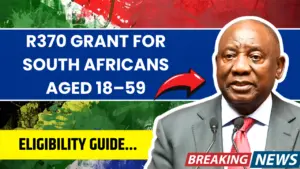South Africa has taken a bold step in 2025 to address road safety concerns with a comprehensive traffic law overhaul. These reforms aim to reduce accidents, curb reckless driving, and promote responsible behavior among motorists. With stricter regulations, zero-tolerance policies, and increased penalties, the new laws are set to transform the country’s approach to road safety. Let’s delve into the key aspects of these changes and their implications for drivers.
Zero-Tolerance Policy on Alcohol
One of the most significant updates to South Africa’s traffic laws is the adoption of a zero-tolerance policy for alcohol consumption by drivers. Previously, motorists were allowed a minimal blood alcohol concentration (BAC), but as of 2025, even trace amounts of alcohol in a driver’s system constitute a legal violation.
Key Features of the Zero-Tolerance Policy:
- Immediate Arrest: Drivers found with any alcohol in their system face instant criminal charges.
- License Suspension or Revocation: Offenders risk temporary or permanent cancellation of their driving privileges.
- Heavy Fines and Jail Time: Penalties can reach up to R120,000, and severe cases may lead to imprisonment.
- Increased Roadside Testing: Authorities have ramped up breathalyzer checkpoints, especially during peak festive periods.
This policy reflects the government’s commitment to eliminating alcohol-related road tragedies and fostering a culture of responsibility among drivers.
Higher Fines for Traffic Violations
To deter reckless driving, South Africa has introduced steeper fines for various traffic offenses. Speeding, seat belt violations, and mobile phone usage while driving now carry heavier penalties.
Updated Speeding Fine Structure (2025):
| Speed Over Limit | Fine (Rands) |
|---|---|
| 10–20 km/h | R750 |
| 20–40 km/h | R2,000 |
| 40+ km/h | Court Summons & License Suspension |
Repeat offenders face additional demerit points and potential court-ordered penalties.
Seat Belt and Child Safety Rules:
New regulations mandate stricter adherence to seat belt usage and child safety measures. Drivers must ensure all passengers wear seat belts, and failure to comply results in heavy fines and increased demerit points.
Holiday Crackdown on Reckless Driving
The festive season often sees a surge in road accidents due to increased travel and reckless behavior. To address this, South Africa has implemented a holiday crackdown with enhanced enforcement measures.
Festive Season Measures:
- Seasonal Checkpoints: Additional mobile traffic units and roadside testing stations are deployed during holidays.
- Expanded Surveillance: Authorities have installed new speed cameras in high-risk zones to monitor traffic violations.
- Public Awareness Campaigns: Drivers are encouraged to prioritize road safety through educational initiatives and warnings against risky behaviors.
These measures aim to reduce accidents and ensure safer roads during the holiday season.
AARTO Demerit Points System
The Administrative Adjudication of Road Traffic Offenses (AARTO) system is now fully operational nationwide. This system enforces a strict demerit point structure that directly affects a driver’s legal ability to operate a vehicle.
How the Demerit System Works:
- Point Accumulation: Each major violation adds between 1 to 6 points.
- License Suspension: Accumulating 15 points results in a three-month license suspension.
- Permanent Revocation: Three suspensions lead to permanent cancellation of driving privileges.
Drivers can monitor their demerit points online or via the RTMC mobile app, fostering accountability and responsible driving behavior.
Stricter Regulations for Public Transport and Heavy Vehicles
Authorities have intensified oversight on taxis, buses, and commercial trucks to improve road safety and prevent overloading and reckless driving.
Penalties for Public Transport and Freight Violations:
- Safety Breaches: Fines for missing seat belts, reckless maneuvering, or overloading.
- Operating License Suspension: Repeat offenders risk losing their licenses.
- Vehicle Impoundment: Unroadworthy or illegally operated vehicles are immediately impounded.
These measures ensure compliance and enhance safety for passengers and other road users.
Expanded Speed Camera Coverage
Speeding remains a leading cause of accidents in South Africa. To address this, authorities have installed new surveillance cameras across high-risk zones.
Benefits of Expanded Coverage:
- Real-Time Monitoring: Cameras provide instant data on speeding violations.
- Increased Accountability: Drivers are held accountable for their actions through automated enforcement.
- Deterrence: The presence of cameras discourages reckless behavior.
Speed-related penalties have also been increased to promote safer driving habits.
Public Awareness and Education
The success of South Africa’s traffic law overhaul depends on public cooperation and awareness. Educational campaigns play a crucial role in informing drivers about the new regulations and encouraging responsible behavior.
Key Initiatives:
- Workshops and Seminars: Community events educate drivers on the importance of road safety.
- Media Campaigns: Television, radio, and social media platforms spread awareness about the new laws.
- Collaboration with Schools: Programs teach children about traffic rules and safety measures.
By fostering a culture of responsibility, these initiatives aim to reduce accidents and save lives.
Conclusion
South Africa’s 2025 traffic law overhaul marks a significant step toward improving road safety and reducing accidents. With zero-tolerance policies on alcohol, higher fines for violations, and a holiday crackdown on reckless driving, the new regulations reflect the government’s commitment to fostering responsible behavior among motorists.
The implementation of the AARTO demerit points system, stricter oversight of public transport, and expanded speed camera coverage further enhance enforcement measures. Public awareness campaigns and educational initiatives ensure drivers understand the importance of compliance and cooperation.
As South Africa moves forward with these reforms, the ultimate goal is to create safer roads for everyone. By embracing the new laws and prioritizing road safety, drivers can contribute to a brighter and more secure future.
F&Q
What is the new zero-tolerance alcohol policy in South Africa?
As of 2025, South Africa has adopted a zero-tolerance policy for alcohol consumption by drivers, meaning any alcohol in a driver’s system leads to immediate penalties such as fines, license suspension, or even jail time.
What are the new fines for traffic violations?
Fines have increased for offenses like speeding, seat belt violations, and phone use while driving. For example, speeding 10-20 km/h over the limit results in a R750 fine, while exceeding 40 km/h can lead to a court summons and license suspension.
How does the AARTO demerit points system work?
Drivers accumulate demerit points for violations. Accumulating 15 points results in a three-month license suspension, and three suspensions can lead to permanent revocation.
What measures are in place during the holiday season?
Enhanced enforcement includes seasonal checkpoints, mobile traffic units, expanded speed cameras, and public awareness campaigns to curb reckless driving.
How are public transport and heavy vehicle violations addressed?
Stricter regulations are in place for taxis, buses, and commercial trucks, including fines, license suspensions, and vehicle impoundment for violations like overloading or unsafe operation.


